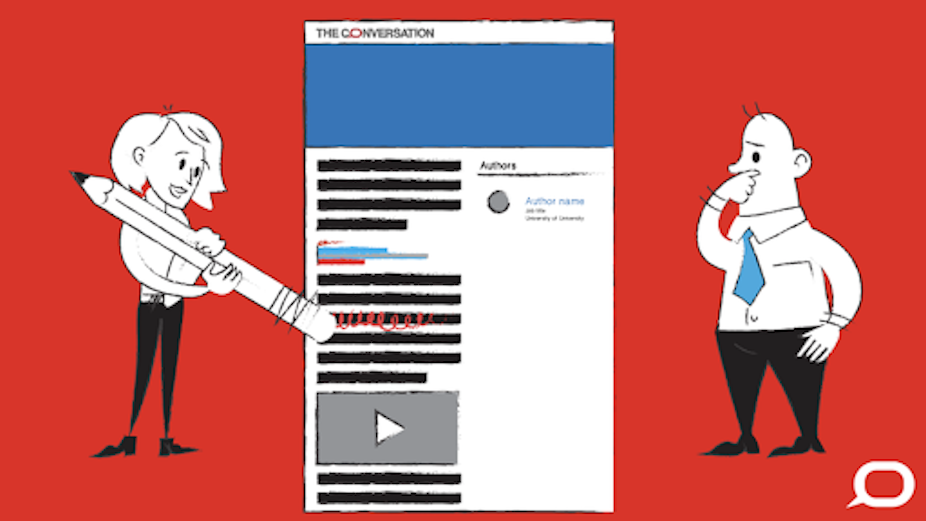What we’re looking for
The Conversation is a source of independent news and analysis written by experts and read by a general audience. Our aim is to get good, evidence-based information to the public, for free.
The types of articles we’re looking for are ones that explain, or have a different take on, news and current affairs, present interesting new research, or offer analysis of matters in the public interest.
Who can write
As per The Conversation’s charter, you should be an expert in the field you are writing about. You must be an academic with an accredited institution and have researched what you are writing about.
It’s also important you don’t have financial or political affiliations that will affect what you write.
What to pitch
Before pitching it’s important you search our website for keywords relating to your idea. We might have already published an article on this topic. If we have, come up with a pitch that adds to the debate and moves it forward.
The most important thing to remember when pitching is to keep it simple: your pitch will be assessed by editors on its merits in communicating to a general audience, not by experts in your field.
What we want to know is: what is your story? In one line, what is it you have discovered, or what are you arguing?
We want to know what the rest of the article will look like: what points or examples will you raise to support your idea, or how was it you made your research finding? If you’re explaining a common idea or issue in the news, what are the main points you’ll reveal to readers?
Most important is what we call the “so what” factor. Why do our readers need to know this? How will they benefit from hearing about it?
How to write
Our readers are engaged and intelligent, but most of them are not academics. When writing, imagine you’re talking to a clever friend or relative – not a colleague. This means no jargon, just plain English. Our favourite saying at The Conversation is that you’d never alight an automobile when you can get out of a car.
Keep it snappy – our pieces are 600-800 words, so get to your point fast.
It’s also important to remember we’re here to inform people, not to convince them of anything or to preach. Aggressive or patronising tones turn off readers – we aim to present people with information to help them make up their own minds, not tell them what they should think.
In an age when journalism is suffering from a lack of trust, we want all the information we share with readers to be verifiable. Whenever you mention a fact or statistic make sure there’s research or data to back it up, and include a primary reference in the form of a hyperlink.
We’ve prepared a more detailed author guide here. Please pitch your ideas here.

